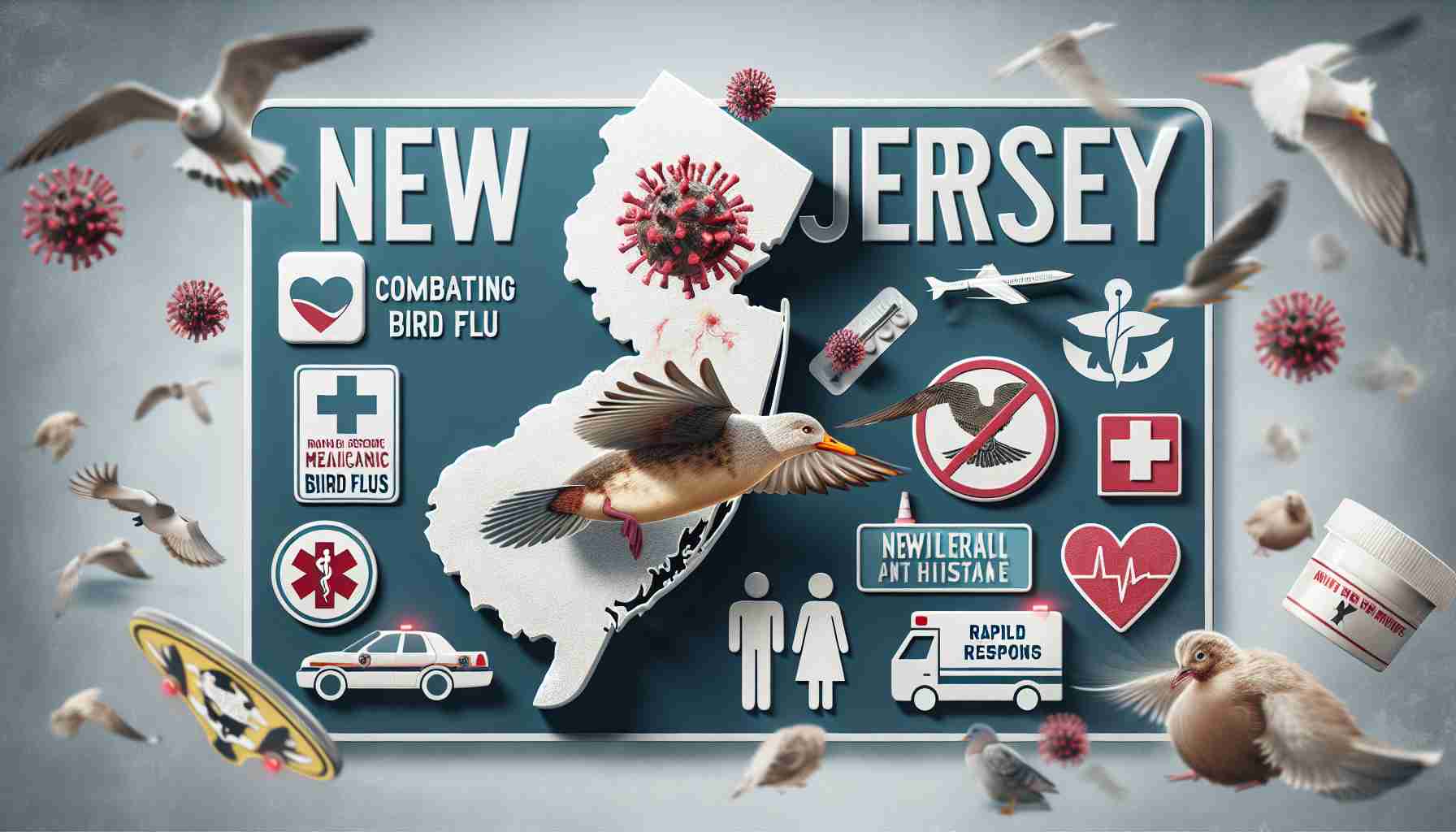Urgent Monitoring of Avian Influenza in New Jersey
New Jersey officials are stepping up their vigilance against H5N1 avian influenza, commonly known as bird flu, despite no human cases or confirmed bird infections reported since last year. The New Jersey Department of Health revealed that the last positive detection linked to the illness occurred in April 2024, when a wild bird was found dead.
Recently, concerns have arisen following localized bird deaths across several counties, prompting investigations by state health, environmental, and agricultural departments. More than 140 snow and Canada geese are suspected to have succumbed to the virus, with some birds’ test results pending federal confirmation.
The impact of bird flu on the broader ecosystem has been severe, affecting nearly 135 million birds and hundreds of cattle herds nationwide. The ripple effects extend to various wild animals and even some domestic pets, raising alarms among health officials.
In New Jersey, the agriculture department has reported no cases in domestic poultry or livestock during 2024. They are persistently testing backyard flocks and live markets to guard the state’s agricultural safety.
While the CDC noted isolated human cases, including one fatality in Louisiana in early 2025, New Jersey continues to maintain low public health risks. Health officials emphasize awareness and caution for individuals working closely with birds or consuming undercooked poultry products, urging the public to report any sick or dead wild birds promptly.
Societal and Ecological Implications of Avian Influenza Monitoring
The ongoing vigilance against avian influenza, particularly H5N1, illuminates broader societal and ecological considerations that extend beyond individual health risks. As states like New Jersey enhance surveillance and preventive measures, the impact on the global economy becomes increasingly evident. The agricultural sector, a cornerstone of the economy, faces upheaval; disruptions in poultry farming due to disease outbreaks can lead to significant price fluctuations and supply shortages, affecting consumers and businesses alike.
From a cultural perspective, the heightened focus on avian influenza reinforces the interconnectedness of public health and animal welfare. Communities reliant on poultry farming may adapt their practices, fostering a deeper respect for biosecurity measures and the ethical treatment of animals. Such shifts can cultivate awareness about the importance of biodiversity, as the ecological balance is essential for preventing zoonotic diseases.
The potential environmental effects of avian influenza also warrant attention. The extensive culling of infected birds poses risks to local ecosystems, disrupting habitats and altering food chains. Prolonged outbreaks could lead to changes in biodiversity, as some species may struggle to recover.
Looking ahead, future trends in disease monitoring and prevention will likely incorporate advanced technologies such as real-time tracking systems and predictive models to mitigate the risk of outbreaks. Understanding the long-term significance of these efforts highlights the profound need for a collaborative approach between health officials, environmentalists, and local communities to safeguard both public health and the integrity of the environment.
New Jersey’s Urgent Response to Avian Influenza: What You Need to Know
Overview of the Avian Influenza Situation in New Jersey
New Jersey is intensifying monitoring efforts against the H5N1 strain of avian influenza, commonly referred to as bird flu. Although there have been no reported human cases or confirmed infections in birds since April 2024, ongoing investigations have been triggered by recent localized bird deaths across multiple counties. With over 140 snow and Canada geese suspected of dying from the virus, state health, environmental, and agricultural officials are on alert, awaiting federal test result confirmations.
Impact on Birds and Other Wildlife
The influence of avian influenza has been widespread, with nearly 135 million birds impacted across the United States, alongside several cattle herds. The ramifications extend beyond poultry, affecting various wild animal populations and certain domestic pets. This extensive mortality in wildlife has raised significant concerns among health officials regarding the potential for new outbreaks.
Current Testing and Monitoring Measures
In response to the heightened risk, New Jersey’s agriculture department has ramped up testing efforts in backyard flocks and live markets. They report no cases in domestic poultry or livestock thus far in 2024, which is a positive sign for the state’s agricultural safety. Nevertheless, continuous monitoring is critical as the virus can quickly adapt and present new threats.
Guidelines for Public Safety
Health officials remain vigilant about public safety. The Centers for Disease Control and Prevention (CDC) have noted isolated cases of avian influenza in humans, including one tragic fatality in Louisiana earlier this year. In light of these events, people who work closely with birds or consume undercooked poultry are advised to exercise caution. Here are some safety guidelines:
– Avoid contact with wild birds, especially those that appear sick or dead.
– Report any instances of sick or deceased wild birds to local health authorities.
– Cook poultry thoroughly to eliminate any potential pathogens.
Future Monitoring and Research Trends
As avian influenza continues to pose a threat, research will likely focus on understanding the virus’s mutations, transmission pathways, and its impact on human health. Innovations in veterinary and wildlife health could also emerge to prevent future outbreaks.
FAQs About Avian Influenza in New Jersey
Q: What is avian influenza?
A: Avian influenza is a viral infection that primarily affects birds, but it can also infect humans and other animals under certain conditions.
Q: How can I protect myself from avian influenza?
A: To protect yourself, avoid contact with wild birds, report sick or dead birds, and ensure that poultry is cooked properly before consumption.
Q: What should I do if I see sick birds?
A: If you observe sick or dead wild birds, contact your local health department or wildlife agency to report your findings.
Conclusion
The New Jersey Department of Health, alongside agricultural and environmental agencies, is taking proactive measures to monitor and respond to potential outbreaks of avian influenza. Increased vigilance, public awareness, and adherence to health guidelines are essential for minimizing risks associated with this virus.
For more information on public health and safety measures, visit the New Jersey Department of Health website.
